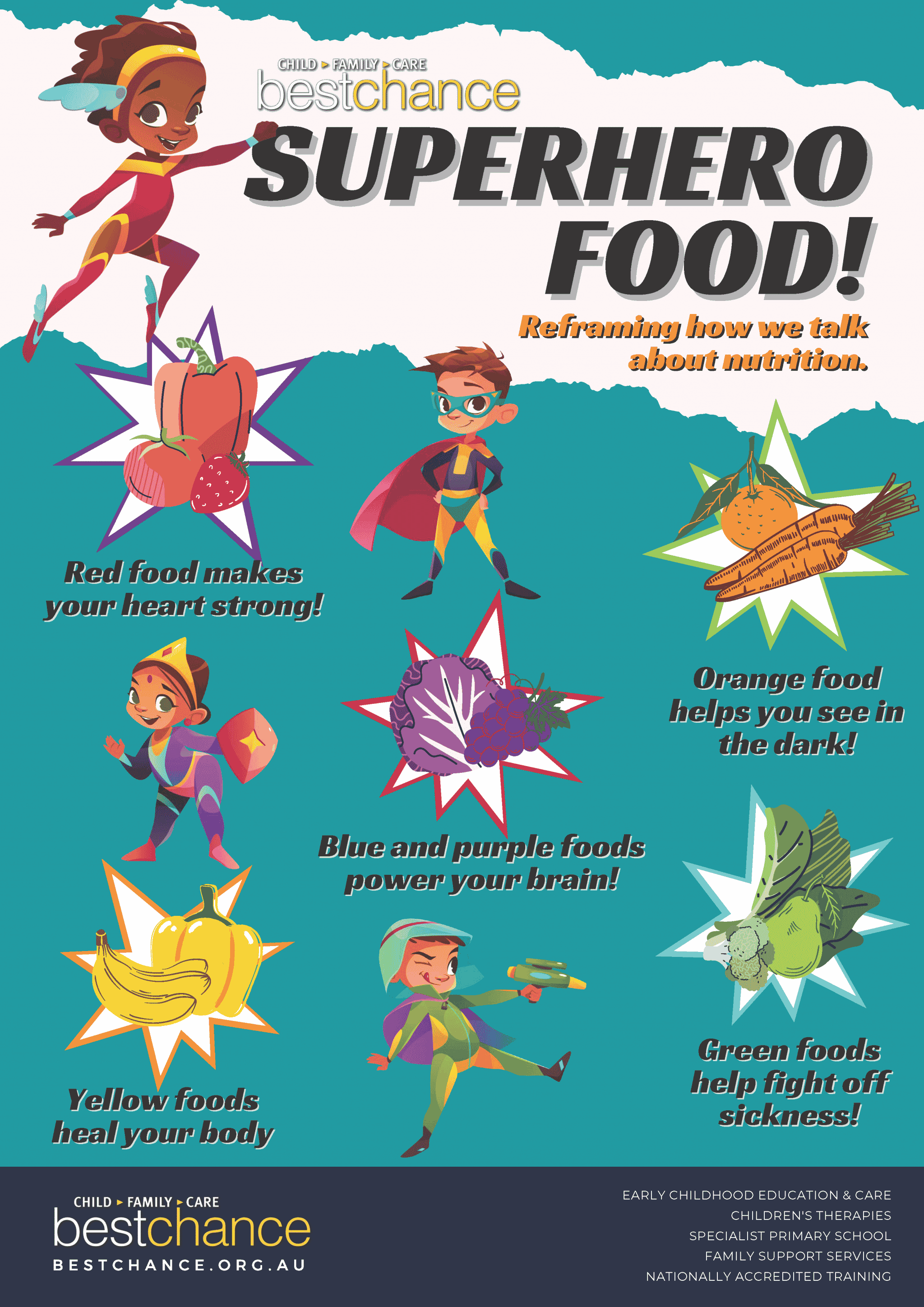How to be a positive body image
role model for children
Parents and carers play a significant role in shaping children’s body image from an early age. Words are powerful and can easily influence their perception of their bodies. It is important that we try to minimise negative comments about our own bodies, and equally as important that we vocalise the positive ones.
There are many ways that parents can encourage positive body image and strong self-esteem in their children.
watch your language
Teach your child that their personality, qualities and interests are more important than their appearance. Emphasise how their qualities are not related to their appearance.
Language such as “you are so kind” instead of “you are so pretty” reinforces that kindness is favoured over looks. It is important to communicate unconditional acceptance of your children so they know their value lies in their qualities, not their appearance.
Similarly, be careful of the language you use when reflecting on your own body. Children learn from observation and often model the behaviour of their parents. If children can see you dissatisfied or unhappy with your body, they can easily pick up this sentiment and form similar sentiments about themselves.
celebrate diversity
Celebrate diversity with your children and teach them that there is power in our uniqueness. People come in all different shapes, sizes and colours, and that ‘healthy’ is the only ideal type of body. Try making positive remarks about a range of body sizes, shapes and colours so that your child sees beauty in a wide variety of people.
model healthy eating habits
Health should always be the emphasis when it comes to our bodies. It is important to model a good relationship with food for our children, and focus on foods that fuel the body for lots of activities.
We all know that children need healthy foods like fruits and vegetables to grow and stay healthy, but we can easily forget that children also need to see us modeling a healthy relationship with food.
If you are someone who diets or “watches their weight”, be aware of the language and behaviour you display for your children. Could they be inadvertently assigning moral value to foods by watching you calorie count or restrict yourself? Be careful with the language used around ‘good’ versus ‘bad’ foods and instead focus on the nourishment that a balanced diet provides. Assigning moral value to foods can create an unhealthy relationship with food, which may result in guilt or shame when eating, increasing the risk of disordered eating behaviours.
Check out our Superhero Foods poster for ideas on how to communicate the benefits of certain foods.

compliment the behaviour, not the result
Confidence plays a significant role in children’s self-esteem, especially when they develop confidence in an ability rather than anything related to their appearance.
Focus on the behaviours and effort your child puts into achieving something, to emphasise the importance of the journey rather than the end product. For example, instead of saying “You’re so smart!” try, “Wow! You read that whole book and kept trying even when there were hard words!”
This places encouragement on behaviour, effort, dedication and focus, rather than ‘being smart’.
focus on fun for physical activities
Try to engage in regular exercise and focus on the enjoyment side of things, rather than to lose weight or gain muscle. Sports are a great way to stay active, feel better and have fun.
Family activities centering around physical activity (e.g. bike rides, walking the dog, swimming, tennis etc…) are a great way to keep the family active and encourage a healthy relationship with exercise.
teach media awareness
Teach your children to be critical of media messages and images that promote ‘ideal’ body types, such as thinness for girls and muscularity for boys.
Being media savvy is a great skill for children so that they can question and challenge Western society’s narrow ideals of attractiveness.
Explain that many of these images are edited to distort bodies and create the illusion of perfection, and that people are very different in real life.
actively listen
Unfortunately, we cannot shelter our children from everything, and there may come a time where they pick up negative body image messages from peers or other adults. Actively listen to your children if they ever express concerns about their appearance and reassure them of how unique and important they are.
To learn more about Pretty Foundation, click HERE
To learn more about Bestchance Child Care and Early Learning Centres, click HERE
To find a Kindergarten in your area, click HERE

